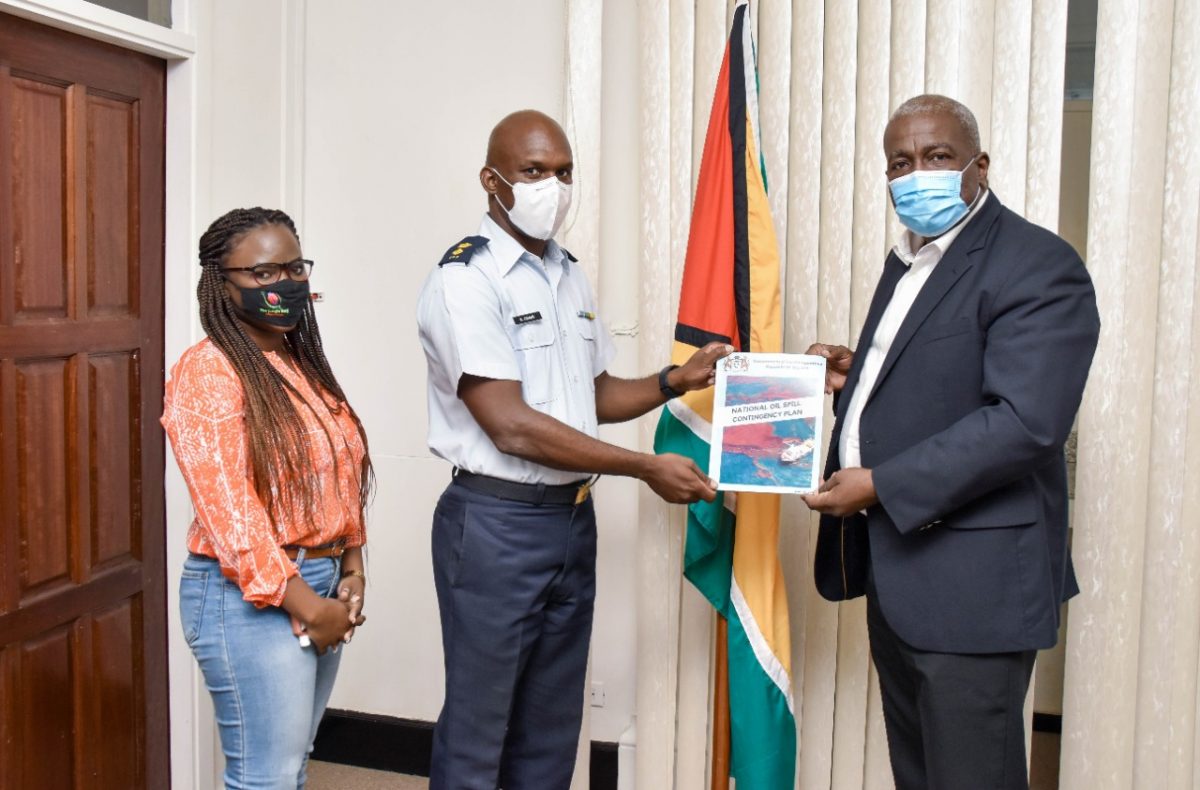Prime Minister, Brigadier Mark Phillips this morning received an initial copy of the National Oil Spill Contingency Plan.
The Department of Public Information (DPI) said that the document was handed over to the Prime Minister by the Director-General of the Civil Defence Commission (CDC), Lieutenant Colonel Kester Craig, during a ceremony in the boardroom of the Office of the Prime Minister, Colgrain House, Camp Street, Georgetown.
The Prime Minister said that he was happy to receive the document and underscored the importance of planning for disaster management.
“We live in a world where nobody likes to talk about disasters, nobody wants a disaster to happen, but the reality is that we have to plan for disasters… simply because disasters disrupt the developmental process of any country and therefore you have to plan for a disaster, so when you’re faced with a disaster you can quickly deal with the disaster, recover and continue the developmental process of the country,” the Prime Minister said, according to DPI.
The Director-General of the CDC said that the plan is as a result of broad consultations with several stakeholder groups and an extensive overview of best practices. He said that the document will be made available publicly via the organisation’s website.
“This plan is very comprehensive, and it has a component where we incorporate an onshore oil spill scenario because of the fact that we will have large trucks traversing the country with large quantities of fuel and petroleum products and because of mining and other activities which require the storage of large quantities of gasoline, diesel and other petroleum products,” the Director-General stated, according to DPI.






